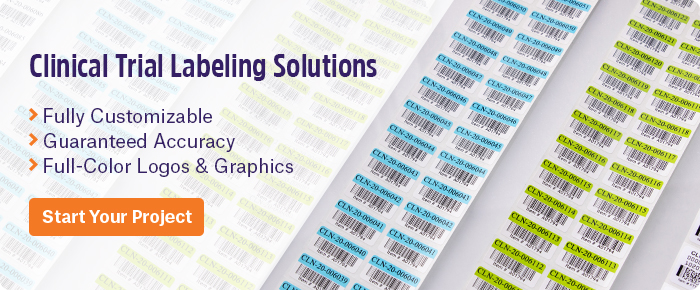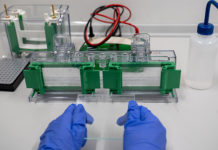
The pharmaceutical industry has a long tradition of incorporating the latest technology to improve drug discovery and deliver safe, reliable drugs to market faster. As such, pharma companies have developed partnerships with various artificial intelligence (AI) and machine learning (ML) vendors to implement new technology and augment applications such as disease identification and diagnosis, helping identify patients for clinical trials, drug manufacturing, and predictive forecasting. In fact, roughly two-thirds (67%) of pharmaceutical companies have already invested in AI or are considering investing in it in the near future.
Current applications of AI & ML
Some of the largest companies worldwide, including Roche, Pfizer, Merck, and Johnson & Johnson, have already collaborated with or acquired AI technology companies. In 2018, the Massachusetts Institute of Technology (MIT) partnered with Novartis and Pfizer to transform the drug design and manufacturing process using machine learning. Since then, other large pharma companies have formed similar partnerships or launched their own AI platforms. AI and ML are currently being used in the following applications:
Disease Identification/Diagnosis: AI can help identify a range of diseases, including various types of cancers, or determine if a patient is positive for COVID. New research has shown that machine learning models may even be more accurate for patient diagnosis than human doctors.
Digital Therapeutics/Personalized Medicine: AI can be used to provide early insight into an individual’s condition and suggest primary treatment options, including over-the-counter medication. As such, it has the potential to one day enhance clinical outcomes for a variety of diseases.
Drug Discovery & Manufacturing: AI and ML help screen drug compounds and assess predicted success rates based on various biological factors. Combined with new personalized medicine and advanced sequencing techniques, these machine-learning models have led to faster drug discovery.
Predictive Medicine: AI and ML are being used to monitor and predict future epidemic outbreaks as well as the development of seasonal illness outbreaks worldwide. A predictive forecast can help better plan supply chain rollout, ensuring the correct volume of inventory arrives where it is needed, on time.
Clinical Trials: AI allows pharma companies to identify appropriate candidates for specific trials based on their medical history while also considering the impact of infection rates, demographics, and ethnicity on the study.
AI’s best fit
While there is a place for AI and machine learning in every aspect of the pharmaceutical industry, the sectors that can best use these new technologies are primarily in drug discovery, manufacturing, and diagnostics, according to industry stakeholders. Drug discovery has become increasingly expensive in recent years. The hope is that AI can reduce research and development costs while maintaining a relatively low error rate. This would help transform traditional drug discovery timelines by accelerating the research and development cycle and improving the probability of FDA approval. AI also has the potential to help repurpose new or previously tested drugs via machine learning algorithms that are able to identify molecules that may have failed in previous clinical trials but can be applied to target other diseases.
Furthermore, AI and machine learning can significantly help with diagnostic assistance by providing a more data-driven approach to patient categorization. This approach considers the patient’s symptoms, previous diagnostic test results, historical data, and other factors to arrive at a personalized diagnosis. The FDA has already approved a number of AI platforms for use in patient care, including for remote patient monitoring, image analysis, and to analyze various diagnostic data. Currently, it remains easier to predict a potential outcome than to suggest a solution to change that outcome.
Some examples of the current use of AI and ML include a pharma company, GlaxoSmithKline, using predictive forecasting for the manufacturing of their popular seasonal brands of allergy and cold/flu medicine. They created a predictive model for the upcoming season, how it may vary by region, and when the predicted peaks and troughs will occur. The goal is to help improve consumer marketing, inventory delivery, and relationships with retailers to better coordinate stock distribution, display, and secondary support. Another unique case involves sensory models. Individuals react differently to taste, size, texture, and color. Sensory AI models help holistically by understanding, predicting, and optimizing consumer preferences. This could ultimately lead to hyper-personalized products for not only drugs and medicines (gummies, tablets, liquids) but also food and beverage products.
The future of AI in the pharma industry
With 50% of global healthcare companies planning to implement AI strategies by 2025, there is no sign of AI adoption slowing down any time soon. The pharmaceutical and drug development industries are specifically investing in AI to discover new drugs for chronic diseases, such as cancer, kidney disease, and diabetes.
AI can also greatly benefit clinical trials by improving the candidate selection process, ensuring the best patients for a given trial are selected. It can potentially remove certain elements that may hinder the trial, reducing the need for larger trial groups to help adjust for these factors. Together with machine learning, AI can also be used to extract more valuable information from existing data, including MRI images, allowing more data-driven conclusions to be drawn from trial results.
This doesn’t mean that there aren’t challenges that must be overcome when implementing AI in the pharmaceutical sector. One obstacle faced by many organizations is the quality and quantity of data available. For a machine learning model to work efficiently, 2 to 3 years of historical data are required. This can become problematic if historical data management wasn’t properly conducted or the company has recently undergone a merger or acquisition. Another factor to consider is proving the business value of AI technology. Given the technology is still in its infancy, clear returns on investment are not as readily available, making it difficult to prove the value of the technology in some instances. Finally, resources and personnel are also limited. Candidates with relevant experience in data science are currently limited, which can delay hiring and getting candidates up to speed during onboarding.
LabTAG by GA International is a leading manufacturer of high-performance specialty labels and a supplier of identification solutions used in research and medical labs as well as healthcare institutions.



